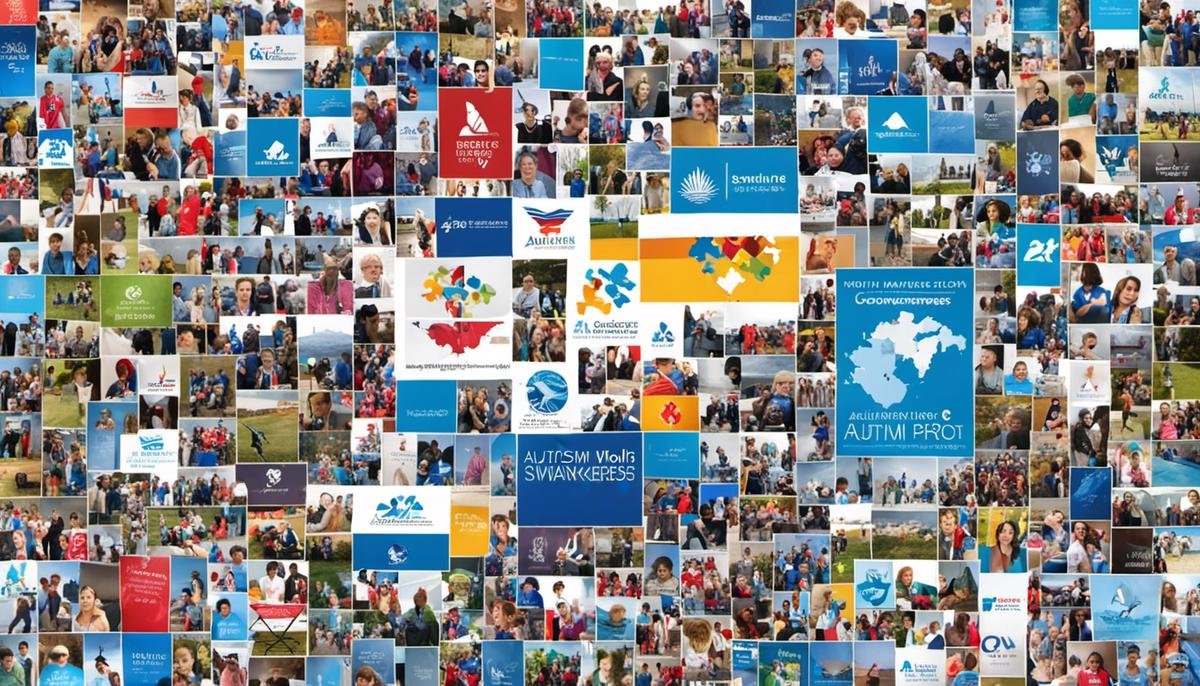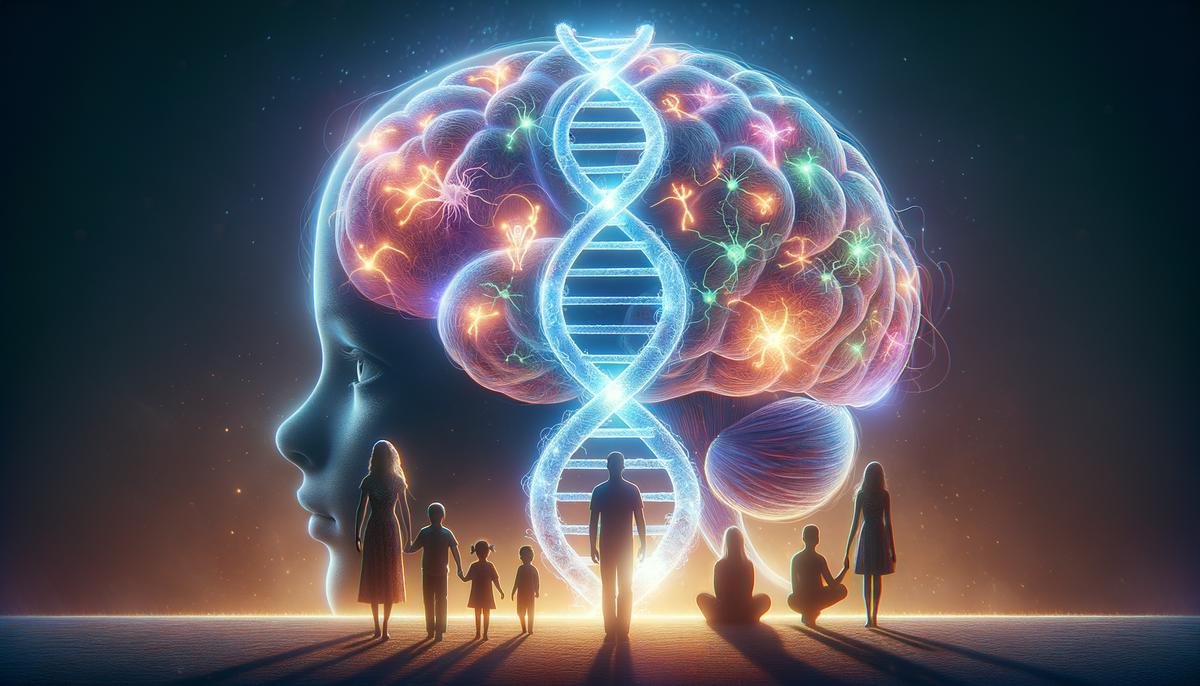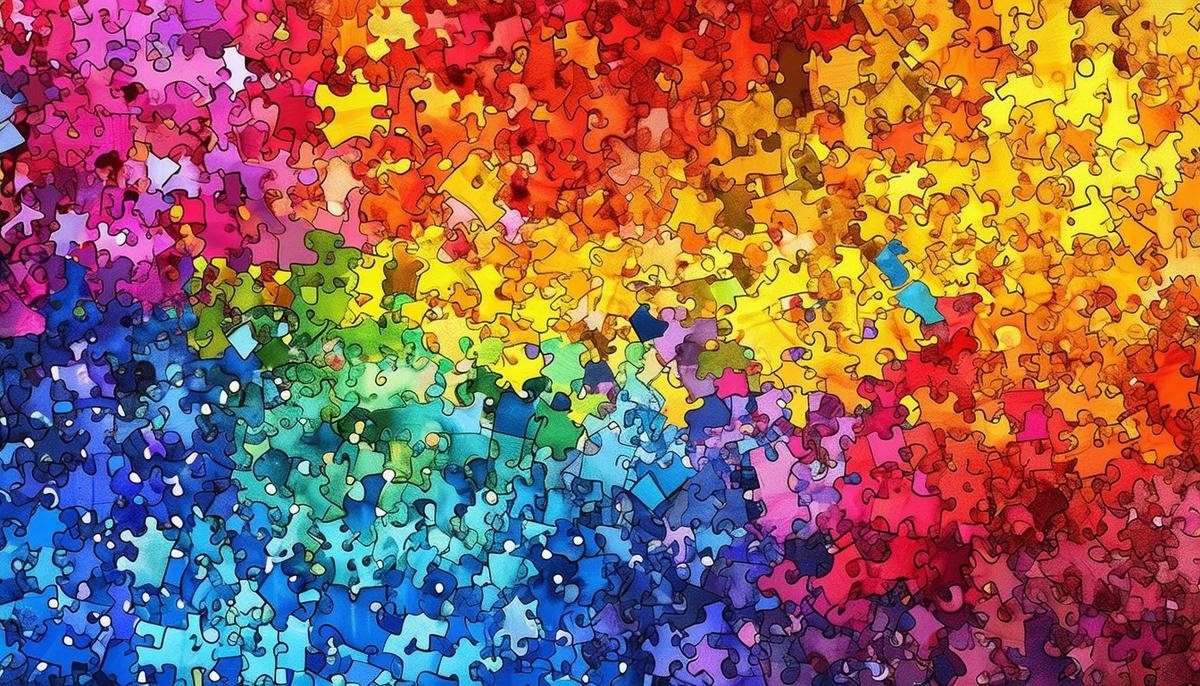
Autism is a spectrum disorder, each unique case reflecting a myriad of intricacies and complexities that make every individual who has it as special as they are. A broader understanding of autism is vital for society as a whole, not just those directly impacted – and that’s where Autism Awareness Events come into play. These events, held across the country, shine a spotlight on numerous aspects of the condition while fostering an atmosphere of acceptance, inclusivity, and support. We will traverse a journey of understanding autism, delve into the importance of these events, explore popular ones, and even provide tips on how to get ready for participation.
Understanding Autism
Understanding Autism: Vital Insights for Families
Families come in all shapes and sizes, each with its specific joys, challenges, and unique dynamics. And often, in the middle of the hustle-bustle of daily routines and household management, one may stumble upon a little bump they weren’t prepared for. Such can be the case with an autism diagnosis within the family. Practically every family has its ups and downs, but when autism enters the picture, it can feel overwhelming. However, with the right information and resources, understanding autism doesn’t have to be an uphill battle. So let’s dive into the basics and key aspects every family should know about autism.
Autism, also known as Autism Spectrum Disorder (ASD), affects an individual’s behavior, communication, and social skills. As the term ‘spectrum’ suggests, it considerably varies from person to person, and no two people with autism have the exact same characteristics or challenges. Some individuals might require significant support in their daily lives, while others might lead independent lives. Recognizing this spectrum is the first step towards understanding autism.
Early signs of autism can usually be seen in children before the age of 3. These usually involve delayed language development, changes in behavior, or differences in social interactions. However, it’s essential to know that these symptoms might not always indicate autism, but they warrant a check-up with a pediatrician for a better understanding.
Screening for autism is a two-step process involving a general development screening during regular doctor visits, followed by a more comprehensive autism-specific screening if needed. Early identification and diagnosis allow for early intervention, which research has indicated as beneficial. It’s important to underscore that diagnosis is not a full-stop; it’s merely a starting point that paves the way for the pursuit of helpful resources and support.
Living with autism entails special challenges but also offers unique rewards. For many individuals with autism, routines and systematic structures provide comfort. Sensitivity to sensory input – such as bright lights or loud sounds – might be heightened, which is another key aspect to factor into daily life. It’s crucial to remember that every individual with autism is a distinct person – they are not defined by autism, but it’s a part of who they are.
One of the most significant ways families and communities can help an individual with autism is by adopting a mindset of understanding and acceptance. While offering patience, empathy, and support, also celebrate their strengths, skills, and singular perspectives. Education about autism plays a crucial role in this acceptance journey.
Navigating the world of autism can be tough, but remember, there are loads of resources and supportive communities available. ASD-focused therapies, services, and programs can make a substantial difference for families encountering autism. It’s all about finding the right fit and pathway for the individual with autism and their loving families.
The journey with autism is not about ‘fixing’ someone or longing for a ‘normal’ life. Instead, it’s about appreciating the unique gifts and challenges autism brings to the family tapestry. At the core of it all, it’s a journey of love, acceptance, resilience, and growth. Embrace it, grow with it, and find solace in the strength of community and shared experiences. Because together, every obstacle becomes just another stepping stone in the journey of life.
Whether new to understanding autism or old hands swinging the toddler, every whispered worry and joyous triumph finds a home in the heart of the caring family, and nothing else matters more. Let’s keep learning, supporting, and thriving together in this journey called life.

The Importance of Autism Awareness Events
The Vitality of Autism Awareness Events
Autism awareness events are essential, and here is where we shine a spotlight on their importance. These events bridge the gap between society’s understanding of autism and the reality faced by those affected by autism spectrum disorder (ASD). Perhaps there’s no other element more pivotal than awareness in creating an empathetic and supportive environment for our kids involved in the spectrum.
Awareness events like Autism Awareness Month, World Autism Awareness Day, and numerous others, large and small, play a unique role in society. They provide a fantastic opportunity for education, fostering a broader understanding towards the complexities of ASD. Beyond the basics, they highlight the diversity within the spectrum, reflecting the adage, ‘if you’ve met one person with autism, you’ve met one person with autism.’
Feature presentations, hands-on experiences, engaging activities and real-life stories shared at these events make the understanding of ASD more palpable than any textbook explanation. They underscore the fact that individuals with autism, quite like everyone else, possess a range of strengths, abilities, interests, and dreams.
Moreover, these events serve as platforms for change— advocating for laws, policies, and regulations that foster an inclusive society while protecting the rights of people with autism. Championing for educational adaptation, employment opportunities, and healthcare accessibility stand out as some of such pivotal causes.
These assemblies also offer an incredible stage for individuals with autism to take a stand, express themselves creatively, and in other aspects that might otherwise be underestimated. Witnessing the achievements of those on the spectrum inspires optimism, squashing misconceptions about their capabilities.
Additionally, they serve as a lifeline to families who have been newly introduced to the world of autism. Connecting with a tribe who ‘get it’ can be a soothing balm, providing advice and reassurance that they aren’t alone. For families who’ve been in this journey longer, these gatherings provide a platform to share their experiences and wisdom.
Autism awareness events equally shine a light on breakthrough research, innovative therapies, and promising developments, not only bringing hope but also practical resources for families to explore.
Not to mention, they play a role in fundraising. Contributions generated from these events significantly support research endeavors, enhance therapy options, expand support services and educational programs vital to the community.
Last but not least, these events instill in society the necessity of acceptance and inclusion. They promote the perspective that different isn’t less and encourage the celebration of neurodiversity. They churn the wheels of change towards a more understanding, accepting, and inclusive world.
Autism awareness events aren’t just a day or a month marked on a calendar. They are powerful beacons that shine light into the autism world, uniting communities, fostering understanding, and paving the path for a better tomorrow for those affected by ASD. And that’s why they are crucial.

Highlighting Popular Autism Awareness Events
As we journey down the path of discussing autism and raising awareness about it, there’s much to gain from recognizing various events that spotlight this topic annually. These events serve several purposes – from fostering understanding and promoting acceptance, to highlighting strides in research and propelling legislative advocacy.
One of the pivotal events in the world of autism awareness is World Autism Awareness Day. Held annually on April 2nd, this day is observed globally with the aim of encouraging individual Member States of the United Nations to promote acceptance, foster understanding, and encourage measures that improve the lives of those with autism. World Autism Awareness Day seeks to emphasize the importance of support and reasonable accommodations, nurturing an inclusive environment. It is marked by various activities including panel discussions, art exhibitions by autistic artists, school assemblies, and more.
Another very significant event is Autism Awareness Month. Celebrated every year in April, the whole month is dedicated to raising awareness and educating the public about autism and issues within the autism community. Through participation in events, local communities gain knowledge and understanding of autism, sparking a positive change in attitude towards people with autism. The month is filled with fundraisers, informational seminars, and uplifting social happenings that promote diversity, acceptance, and inclusion.
Sneaking a peek at unique annual social gatherings, Autism Speaks Walk holds a significant place. These community events, held in various cities, bring together supporters from all walks of life – families, friends, corporations, and supportive community members – united around the goal of raising funds for research, resources, and programs.
The Autism Society National Conference is another pivotal event, serving as a platform for professionals, educators, advocates, and parents to share informative and practical sessions while seeking ways to improve the quality of life for those affected by autism.
The Converge Autism Summit, hosted by Springbrook Behavior Health, is an annual conference that gathers healthcare professionals, caregivers, and educators to share innovative therapeutic strategies and research findings in the realm of Autism Spectrum Disorders.
Simultaneously, there’s the Global Autism Project, a nonprofit organization that hosts an annual event celebrating neurodiversity and contributing to global understanding and acceptance of people with autism.
Finally, Art for Autism is an annual auction event to bring to light the delightful artistic abilities of many people on the Autism Spectrum. It’s an inspiring event that values individuality while supporting research initiatives and treatments.
These noteworthy autism awareness events create waves of understanding, acceptance, and inclusion. They not only provide platforms for loud, proud advocacy but also powerful modes of connection. They foster change, kindle hope, and build communities. Above all, they continue to underline the richness of life on the autism spectrum – a life that deserves respect, understanding, and full participation. They shape a compassionate world, where being different just means being uniquely beautiful.

Preparing for Autism Awareness Events
As families, our involvement in autism awareness events can lead to a deeper understanding, acceptance, and enhanced support for autistic individuals. Feel empowerment and make a difference by fully participating in and preparing for said events. Here are few ways families can gear up and take part in these significant happenings.
Leading up to an event like Autism Awareness Month or World Autism Awareness Day, families can start by doing additional research on autism and the event’s specific themes. Become better equipped with knowledge, not just to help oneself, but to also possibly assist other participants who are looking to understand the context better.
Spreading the word in local communities is another step. Share about the event on social media, community boards, or in person, to draw more people into the event. The aim is to create a ripple effect of awareness and understanding that transcends beyond the family unit.
Before the event, sit together as a family and discuss what autism means to each one. Grasping this on a personal level prepares individuals to contribute meaningful conversations at these events. Involving children encourages them to empathize and better comprehend their peers who may be on the spectrum.
Consider participating in fundraising initiatives associated with the events. Money raised often supports crucial research and programs catering to individuals with autism. Hold a garage sale, set up a lemonade stand or bake cookies and donate the proceeds to the cause. This simple act of giving nurtures generosity and empathy in younger family members, which are transformative lifelong values.
Events often feature an array of activities, like the Autism Speaks Walk, or the Autism Society National Conference. Participate fully, engage in discussions, ask questions, and share personal experiences or insights. The Global Autism Project annual event or the Art for Autism annual auction, each provide yet another platform to connect and learn.
Remember that these events are not merely to expand one’s knowledge, but also to recognize the talents and contributions of individuals with autism. Be open, appreciative, and celebrate neurodiversity in all its splendour.
Showing up in matching outfits or accessories helps your family stand out and demonstrates unity. Something as simple as wearing a puzzle piece, the universal symbol for autism, could spark conversations with other participants and foster connections.
Concluding, not only does participation in autism awareness events promote empathic understanding within families, it also cultivates a more accepting and inclusive society. The impact extends far beyond the actual event, contributing to a future filled with love, acceptance, and equal opportunities for all, regardless of where they fall on the beautiful spectrum of human diversity.

Participating in Autism Awareness Events propels the essential narrative of understanding, acceptance, and support for those on the spectrum and their families. With each story shared, with every fact learned, we collectively chip away at the misconceptions and ignorance that often surround the subject of autism. From exploring what autism truly is, elucidating the reasons why these events are essential, highlighting popular ones, to prepping up to partake in them—the desire for a supportive, more informed society remains the focal point. In our quest to create a more accepting world, let us remember that empathy is the guiding light that unfailingly leads the way.




